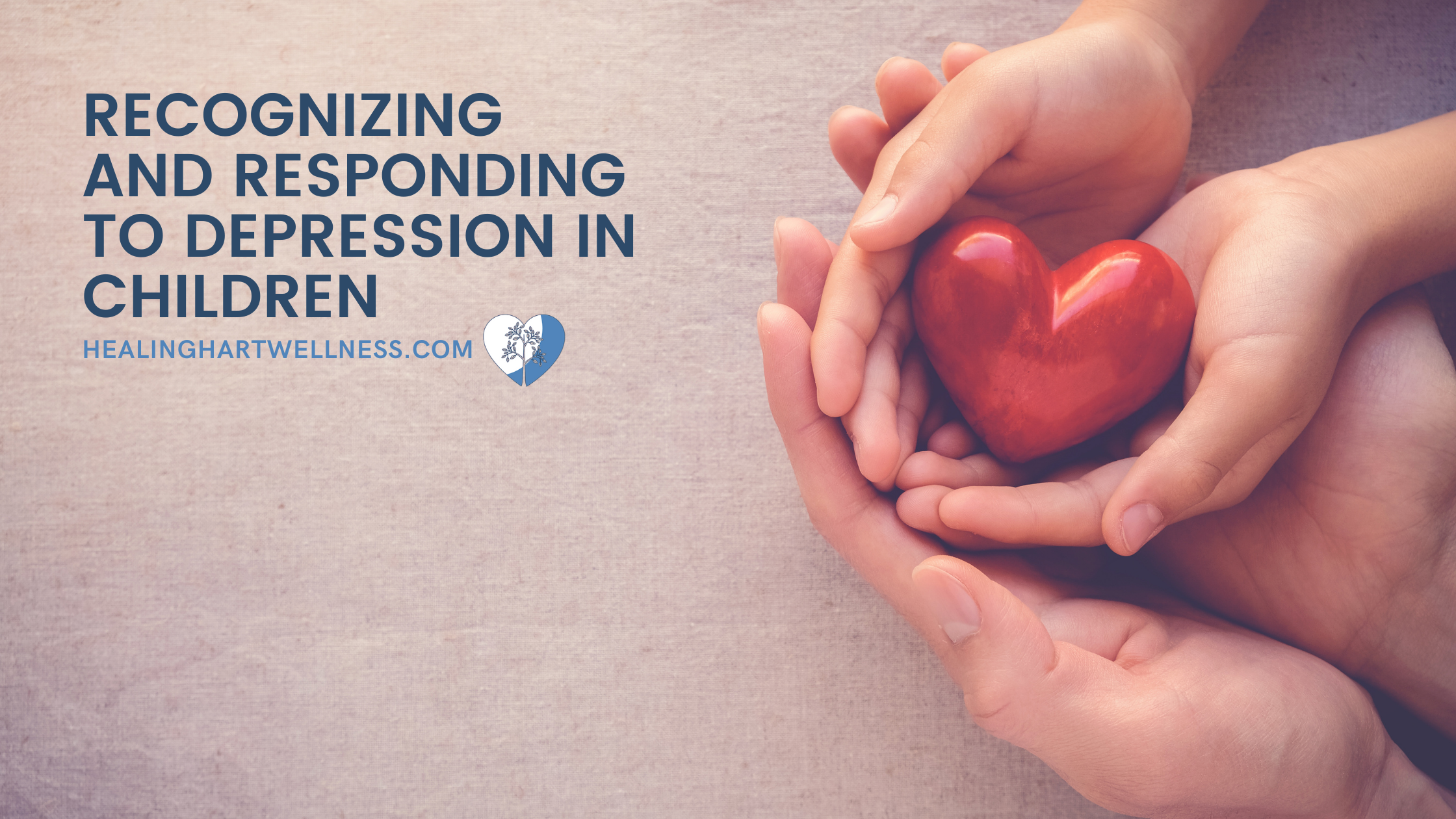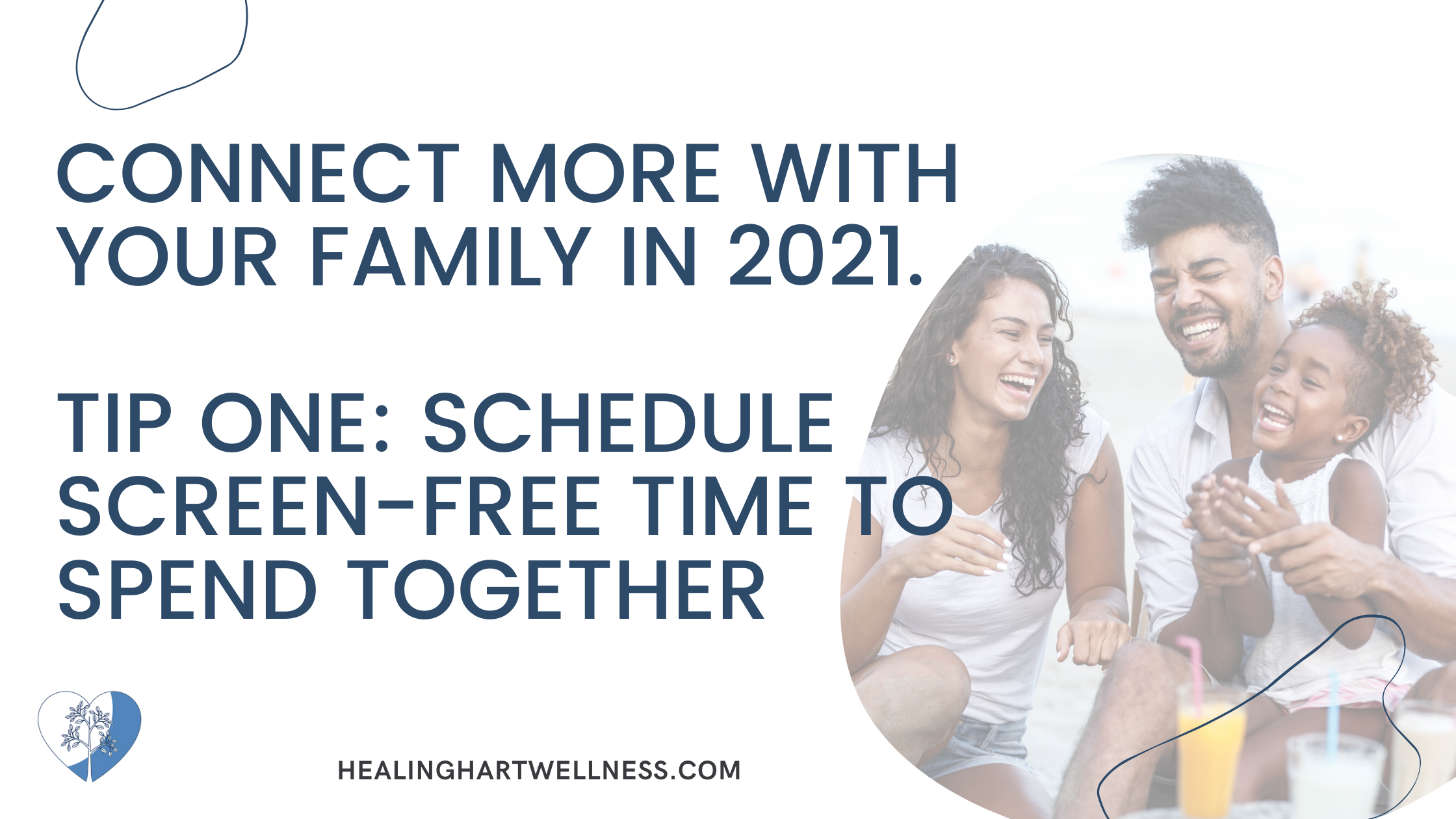
Recognizing and Responding to Depression in Children

3 Ways to Support Your Child this Pride Month
Happy Pride Month! Having a supportive family can be a lifesaver during difficult times and helps provide a strong foundation from which children can safely discover and build their identities. Here are a few tips for cultivating inclusive parenting that can be used whether or not your child identifies as part of the LGBTQ+ community!
Remember, there is no “default.” No one way to parent works for every family and there is also no one way to live and express ourselves as people. There are often invisible expectations put on us that can make being a part of the LGBTQ+ community feel like something different or “other”. Many youth who are a part of the community feel like they have to “come out” to their family and friends because otherwise it is assumed that they are heterosexual and cisgender.
Instead of asking your teen son if they like any girls or your daughter if they like any boys, you could ask, “Are you interested in anyone? What do you like about them?” Using neutral terms can help give your child the space they need to be themselves and build their own identity. You can also consider if there may be activities, clothing, or behaviors that your child may not have been given the opportunity to explore because of their birth sex and make sure that opportunities aren’t being accidentally blocked from them because of stereotypes. Everyone expresses themselves and experiences life in different ways.

Navigating Back-to-School Stressors During COVID

Connect More With Your Family This Year - Tip Number 1 - Schedule Screen-Free Time
Have you watched The Social Dilemma on Netflix, yet? I recommended it sometime in 2020. Phones and their apps have shifted from tools that we use to get things done to advertising platforms that are designed to pull us in and keep us pulled in, calling out to us when we try to resist so that they can show us ads and make money. Everything down to the color of your notification badges (the circle with the number) are designed to keep you checking your phone.
How many times has your family been in the same room together under the guise of watching a movie as a family but everyone is sucked into their phone or tablet? Maybe one family member is watching the movie on the TV, but everyone else is distracted? This would never happen at our house because we are all robots. I kid. This happens a good bit, and generally when we are unintentional about our screen use. Sometimes, we need a little escape, and sometimes we need to intentionally schedule a time to connect without our phones to distract us at every vibration or ding.
So, for 2021, pick just ONE night a month for SCREEN FREE family time. For that one night a month, have everyone put their phone somewhere away from them and do something together as a family. Allow yourself to truly be present. Try not to sneak away to check your phone (that email can wait). Try to not even bring up things that don’t have to do with whatever you are doing in the moment. You don’t REALLY need to talk about that school project right now, seriously.
Need some ideas for what to do?

Grief During Coronavirus
When you hear the word grief, do you instantly think about death? Grief comes in many forms. We may grieve the death of a loved one or pet, relationships that change or end, and even missed opportunities. Grief is simply the feeling of deep sorrow we experience when we have a loss. It is an emotion that can be physically expressed by a deep pang in the bottom of the stomach, a heavy weight in the chest, extreme exhaustion, lack of appetite, sleepless nights, crying, and rage. Do you recognize the feeling?
On September 11, 2001, I was in Spanish in a portable classroom at Rocky Hill Middle School as they announced to us we were being dismissed mid-morning. I distinctly remember the confusion in the moments and days that followed, the answers no one really had, and the feelings that accompanied those moments - grief. Similarly, my mother has told me that she remembers exactly where she was when JFK was shot in 1963. Although she was 12, the same age as I when 9-11 happened, and we didn’t talk about it until over 40 years after the event, it was all very vivid in her memory (she was also at school). Neither of us experienced personal loss during those events, yet we both experienced grief and the feelings that accompany grief.
So, what does this all have to do with your child and COVID-19? The events surrounding COVID-19 didn’t happen as abruptly as 9-11 or JFK, but they affected our state, country, and world. Just as 9-11 redefined air travel and JFK’s shooting redefined presidential security, the Coronavirus we are dealing with is redefining our social world as we know it. This pandemic will likely be a memory your child has forever as they will experience the effects for months to come, and it is more than likely that your child is grieving.
Your child has experienced an incredible amount of loss in the last two months. Along with losing their routine and their support network at school, they have lost their sense of normalcy. There is no visiting with friends to play, accompanying you to the grocery store to beg you to buy their favorite snacks, or practicing sports in person with their coaches. They are confused (rightfully so) and have questions that cannot be answered. Their confusion is compounded by the confusion we have as adults. We don’t know what summer will look like, we don’t know about their birthday, and we don’t know when we can hug our extended family again. They grieve for these moments.
Our children’s grief is experienced in many different ways. For graduating or moving students, the grief intensifies. They won’t get to hug their friends goodbye. They don’t get to clear out their lockers or jump through the doorway on their last day of school. For younger students, the grief is more confusing. They don’t have the language to explain why they are feeling what they are feeling -- they may not even have the words to name their grief.
So, how can you help your young person?

Cope & Connect During COVID-19
You wake up and get yourself some coffee, enjoying the few moments of quiet before you awaken the house. Once you start waking up your child(ren), the day involves making sure they are on their live sessions, helping them check off items on their to-do list, managing a meltdown or two, and corralling them back to their desk to finish their work. You feel pressure to be enjoying these moments, but in reality, you just want them to learn from their teachers at school, and you kind of feel guilty for those feelings. Sound familiar? You are not alone.
The times we are in are not fun-filled vacation times. Your young person is struggling with the disruption in their routine, and I would bet you are dealing with a mix of meltdowns, anxiety, trouble falling asleep, clinginess, difficulty paying attention, change in appetite, sadness, and/or frustration in your home right now. Let me repeat: you are not alone. Right now, your child needs you to help them figure out how to manage their feelings and survive this challenge. Right now, they need you to help them develop skills to cope and to connect. Let’s look at what this means and how to help.
Cope: Young people need to learn skills to manage their emotions in a healthy way. You may have noticed that your child is struggling to use the strategies they found helpful prior to this pandemic. Perhaps they are regressing or having more meltdowns. Let’s explore two different strategies to help your young person learn to cope.

How to Talk to Your Child about Kobe Bryant
As you have undoubtedly seen in the news, this past Sunday, Kobe Bryant along with his thirteen-year-old daughter, Gianna, and seven other individuals, died suddenly in a helicopter crash. Around the world, people of all ages felt waves of different emotions as the news of the crash circulated quickly through many media sources and was repeated over and over. Alerts popped up on devices, and some children were exposed to the news before they even had a chance to be told by their parents what had happened. Last night, his wife broke the silence on her own grief, noting that there weren’t enough words to describe her grief and pain. Have you asked your children or teens how they feel about Kobe’s death, yet?
If you don't know much about Kobe Bryant, he spent all of his 20 seasons in the NBA as an LA Laker, earned 18 All-Star selections, five championship rings, and two Olympic gold medals. Kobe, who joined the NBA at 17, and was only 41 when he died, left behind three daughters and a wife.

Connect with Tabletop Games
When is the last time you sat down to play a game with family or friends? I don’t mean video games (not that I have anything against video games). I’m talking about tabletop games. You may think these types of games as board games. I like the term tabletop (though most of the time I’m actually playing on the floor) because not all of the games you can play actually have boards. When you think tabletop games, your mind might go to games like Monopoly, Scrabble, Clue, Chess, The Game of Life, or other family favorites. In recent years however, it seems as though there has been a resurgence in world of tabletop games and there are so many new games to play.
This resurgence of games couldn’t come at a better time. The promise of technology to connect the world seems to be a double edge sword. On one hand we are more connected, and we have access to the world and information at our fingertips. But on the other hand, many of us are more isolated than ever before, trading our need for connection with distant “likes.” A saccharin like release of dopamine tricks us into believing we are connected. Most of us who are old enough to remember the time before all this connection know what it means to be truly connected. My concern is not for us but rather for our children who are growing up in a world where having your face glued to a screen is the norm.
Interpersonal skills do not develop without practice. Playing games together teaches some of these important skills. Through games, we learn to be competitive while being kind (with guidance). We learn how to deal with losing (again, with proper guidance). We learn problem solving and strategy. In co-op or team games we learn how to work together. Naturally, playing together will strengthen our relationships. Through games, we learn planning and we learn patience. We learn to read other’s body language while developing a deeper awareness of our own.

Easing Back-to-School Anxiety in Children and Teens: Tips for Parents
Back to school time can be stressful for most children, teens and their parents. For young people with anxiety, this stress is heightened. Their minds fill with “what ifs” and worst case scenarios, and without any real interactions at school for a couple months, anxious imaginations can go wild:
Will my teachers be nice? Will I fail a class? Will my friends remember me? Will I have to eat lunch alone? Will I get lost in the school building? Will people treat me kindly? What if I trip up the stairs? What if I don’t know anyone in my math class? What if I don’t understand anything in chemistry? I shouldn’t have signed up for that AP class. I shouldn’t have taken Photography and not Trig. What was I thinking? What am I doing? What am I going to do? I can’t handle this. I won’t be able to make it. I don’t want to go to school.
Just reading the thoughts above may feel overwhelming to you, but the truth is that for an anxious young person, this can be their reality. The worry center of the brain takes over, and a single worry about a teacher can start a downward spiral. That spiral ends with the young person deciding that school will be a terrible experience and saying they don’t want to go back in the fall.
Young people can learn to cope with their anxieties, but at first they may not know where to begin. Use the tips below to start to understand the anxiety and to help your young person have a positive return back to school.

When Your Child Asks You About a Mass Shooting: How to Talk to Children and Teens about Mass Shootings
This past weekend, in less than twenty four hours, there were two mass shootings. The weekend before yet another. Our children and teens are more plugged in than ever, more aware than ever. It is important to have an understanding of how to talk with them in an age-appropriate way. This includes what story to tell, how much detail to give and how to answer their questions.
Not sure how to handle the conversation? There's no one size fits all for any young person or any age, but these tips may help.
Let them lead the conversation. Depending on your child's age, they may have not heard one thing about the shooting (think early elementary or younger) or, on the opposite side of the spectrum, they could have over exposed themself already (think teens with their own technology).
If your child is younger than 7/8, and doesn’t bring up the shooting, you may not want to bring it up to them. You may end up scaring them and then having difficulty talking with them more. You may give them details they wouldn't have been exposed to otherwise. You may leave them with many more questions than answers. If they bring it up, allow them to share their feelings and to lead with any questions that they have.
If your child is 8/9 or older, they have likely been exposed to the story on their own, especially if they attend camp, daycare or school. Ask if they have heard about the shooting and what they have heard. Ask them their feelings. Ask them their thoughts. Let them lead you into the conversation that they are ready to have.

I Believe You - A Therapist's Open Letter to Parents & Caregivers Everywhere
I see you as you sit across from me in my office. You are talking to me for the first time, for the tenth time, or maybe for the fiftieth time. I’m glad you’re here to talk. Truly, I am.
I see you. You are a parent, a friend, a sister, a brother, a child, a boss, a partner, an employee, a co-parent, a human. The cleaner of the spilled milk (literally), the helper of the homework, the packer of the snacks. The juggler of the schedules and carpools. The overworked and in need of rest. The there all the time, the “there-sometimes,” the there. I see you as a person who has your own story, your own history, your own needs. I see you as a parent who cares so much (even if you feel so lost) and wants what is best for your child.
I hear you. I hear you as you talk about your frustration with not knowing how to help your child, with wishing you had an answer. I hear you when you say that you are lost, confused, and maybe even annoyed. I hear you searching for an answer on how to show your teenager how much you love him, on wanting to support your little one as she struggles to stay in her seat at school. I hear you when you say want to wrap them up in your arms and protect them. I hear you when you say want to see them learn to be more independent. I hear you when you say want everything for them but also need your own alone time, too.

How Do I Talk to My Child's Other Parent About Therapy?
You’ve noticed the signs. Your child seems different to you: more worried about things that didn’t use to bother him, more angry at times she used to be calm. Or maybe, your child has asked you directly to see a therapist. He wants someone to talk to about what’s next after graduation. She feels different than everyone else at school. You’ve searched around the internet, found some prospective therapists, and even made some calls.
Now is the time to talk to their other parent (your spouse or a co-parent) about getting them in for an appointment. You’re not sure how they will respond. They may be open and willing, or they may have questions or even concerns about the process. Either way, you know you have to have the conversation.
Try these suggestions to ease the discomfort of beginning to talk with them:
Is this a good time to talk? It may seem hard to wait until there is a special time to talk. The days are busy, and sometimes you and your spouse may not get time alone until the evening. If you are co-parenting, you may never have one-on-one time unless you plan it. Either way, conversations about the wellbeing of your child are not the best to be had if attention is low or time is sparse. When you’re ready to talk with your child’s other parent about therapy for your child, make sure that there is enough time for the conversation, that it is in a space where you can share all your feelings without worries about privacy or your child overhearing. It is also important that other parent is in a place where they can actually hear what you have to share. The importance of therapy disappears on the sidelines of games, over texts at work, or while dropping the children off for the weekend. How do you know when the right time is? Rather than assume, ask the direct question. If the answer is yes, great. If the answer is no, ask for a specific time during the next day or week to sit down together and talk about your concerns about your child.
I’ve noticed some changes with [child] including…and I’m concerned. What do you see? When you speak from a place of “I” you disarm defenses and open doors to more effective and neutral communication. Speak from your own perspective about the changes you have seen with your child. If your child has specifically asked for counseling, include their request to you in this observance, and share about the conversation if you feel comfortable. Then, allow the other parent to share their observations. Remember that the other parent may or may not see what you see, and they may not interpret the symptoms you’ve noticed the same way that you do. We interpret based on our own beliefs and experiences, so consider where your partner or co-parent may be coming from, and use empathy when listening to their opinion.

5 Signs It’s Time to Get a Therapist for Your Child
Childhood and adolescence can be a confusing time for both children and for parents. At times, you may be staring at your child wondering: Is that really my child? Moods swing fast, behaviors quickly, and it can be hard to know what is part of growing up and what is something that needs extra attention. You want to be a supportive parent, and make sure they get the help they need, but you don’t want to overreact either. I get it, and I understand a lot of parents wonder: How do I know when it’s time to schedule my child with a therapist? If you notice one or more of these signs, it might be time to check in with a therapist.
The challenge you are noting (mood, behavior, self-esteem, etc.) is affecting your child or teen in multiple places. If you are starting to notice that your young person is struggling with a specific challenge in a variety of places: school, home, work, with friends, with family, sports, extracurriculars, other social arenas, etc., you may want to consider meeting with a counselor. It is typical for young people to show a little more emotion and boundary pushing at home, or for them to struggle at school sometimes. You may even be noticing that they keep it together all day at school but struggle at home only. Sometimes challenges spill over into several different environments, and then it is definitely time to seek outside help. Even if they are only struggling in one area, but it has been an excessive time, you may still consider calling a therapist.
Your child excessively worries. Does your child frequently ask you about what is going to happen? Do you notice them stressing about the future, the safety of themselves or others, social situations or maybe a specific fear? Anxiety can ripple out and affect people in crippling ways. If left untreated, it can become more detrimental overtime. It is important for your young person to learn what triggers their anxiety and to be taught skills to understand and cope with their feelings. An appointment with a therapist will also allow you time to learn more about anxiety and how to support your child on their journey to address their worries.
Your hear your child say things like “I’m worthless,” “No one likes me,” “I don’t matter.”

5 Tips for Effective, Connection Building Play With Your Child
As a counselor, I often talk with parents about the importance of play with their child. The (easier said than done) task of playing with a child, and truly playing with them on their level, how they want, can increase the bond between parent and child in ways that conversation simply cannot. Play is a child's natural medium for connection and communication, and I often recommend that play is increased at home. Parents are very open but often confused: "She does play," they respond or "How do I play with him?" They ask. Below are five simple but effective tips for play with your child…

